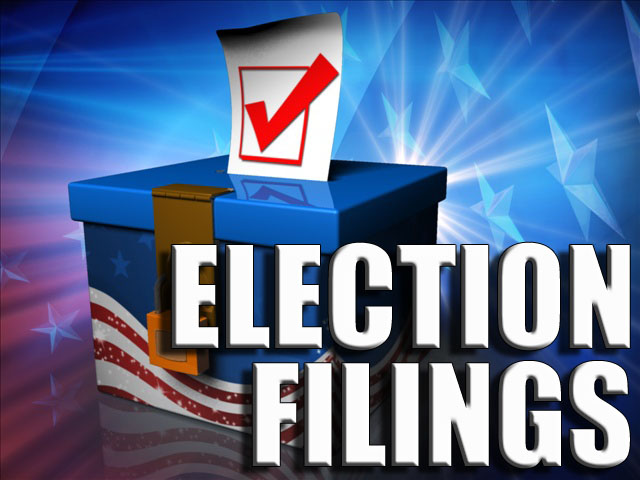I’m ambivalent about this.
Most cities in Texas — from Galveston to Lubbock — moved their May elections to November under a pandemic-era decree by Gov. Greg Abbott.
But the choices facing voters will remain limited to candidates who filed for office months ago — at least for now.
State Rep. Mayes Middleton, a Galveston County Republican, wants to reopen the filing period for candidates to lead cities and other political jurisdictions, including school boards. He believes voters may have soured on incumbents facing little or no competition.
Middleton is asking Attorney General Ken Paxton whether the state should give candidates who want to run in a postponed local election until mid-August to file for a spot on the ballot.
“I think it’s also only fair that this occur because there are a lot of people that have been frankly unhappy with how some of the decisions… have been made in local government during this pandemic,” Middleton said.
The legal rub: Abbott’s March 18 order was silent on the filing deadline. But Abbott’s secretary of state, Ruth Hughs, wrote local officials that “the postponement does not have the effect of reopening candidate filings.”
Middleton believes that guidance is not supported by election law and Abbott’s order. Middleton, who chairs the arch-conservative Texas Freedom Caucus, contends in his July 2 letter to Paxton that Texas law clearly states that if the election day is changed or moved, the filing period rolls forward with it.
He said the ripple effects of a legal opinion by Paxton go well beyond proving greater scrutiny for elected officials who have issued shutdown orders or mask requirements, which have drawn the ire of many conservatives. Some local officials believe that tax rates adopted by cities for the coming fiscal year could greatly exceed what voters have the appetite for amid curtailed local tax revenues due to the pandemic.
I mean, I don’t agree with Mayes Middleton on much, and I think his motives for this action are screwy. But I confess that a part of me thinks that an election held in November, even if it was supposed to have been held in May but had to be postponed for whatever reason, should have a filing deadline that’s standard for a November election. On the other hand, the original filing deadline for the May 2 elections was February 14, more than a month before Abbott’s order that rescheduled the thing. As such, it’s hard to argue that people may have been unfairly excluded from filing. Obviously, conditions have changed, and I think there’s a valid case to be made that if these elections had been scheduled for November in the first place, there would be a very different lineup for them than what exists now. I think you can also make a valid case that the voters have it in their power to persuade the candidates they do have to prioritize the things they want now, as opposed to the things they would have wanted then.
On the related question of whether we should have regular elections in May at all, I’m also ambivalent. No question, turnout would be much greater in November elections, and as a general principle I think that’s preferable. But November elections, especially November elections in even-numbered years, are full of races with a lot more money and noise-making ability, which combine to drown out whatever local issues would be heard in a quieter context. It would be so much better if people simply took a greater interest in their local and school board elections, so that they could be held at any time and didn’t need the boost of a Presidential or gubernatorial election to get even semi-decent participation. I’d like to have a robust debate about this, but I fear that only the hardcore, vote-in-every-election types would be tuned in for it, and that would miss the point entirely. I don’t know what else to say.
One more thing:
Republican Cheryl Johnson, the Galveston County tax assessor, wrote Paxton in support of Middleton’s position. She said the pandemic has “opened the eyes” of Texans to potential government overreach, namely local tax rates that could soar as cities try to bridge budget shortfalls. Johnson wants officials considering tax hikes to feel the pressure of a campaign challenge.
Johnson noted that Senate Bill 2, signed into law by Abbott during the 2019 legislative session, requires cities to receive voter approval before levying taxes that would result in collections 3.5 percent higher than the previous year. But the bill contains a disaster provision that permits a city to collect more than twice as much for at least two years if any part of the city is declared a disaster area during the current tax year.
State and local officials are at odds over whether the coronavirus pandemic qualifies as a “disaster” to trigger this provision.
“I’m of the opinion that COVID-19 is not the type of disaster that would warrant the disaster provision of Senate Bill 2,” she said.
The Texas Municipal League says it conducted a survey of cities recently and found the “vast majority” plan to keep increased collections below the 3.5 percent threshold allowed by Senate Bill 2.
Yeah, sorry, if you don’t think what we’re in now counts as a “disaster”, then I’m afraid I just can’t take you seriously. SB2 was a terrible bill for many reasons, and this is one of them. But look, if you don’t want cities and counties to try to deal with their massive revenue shortfalls on their own, then there is a simple alternative, and that’s to push the Senate to pass the HEROES Act, which the House passed months ago, to provide fiscal relief to local governments for precisely this purpose. If you’re not down for that either, then I think we know all we need to know about your priorities.

